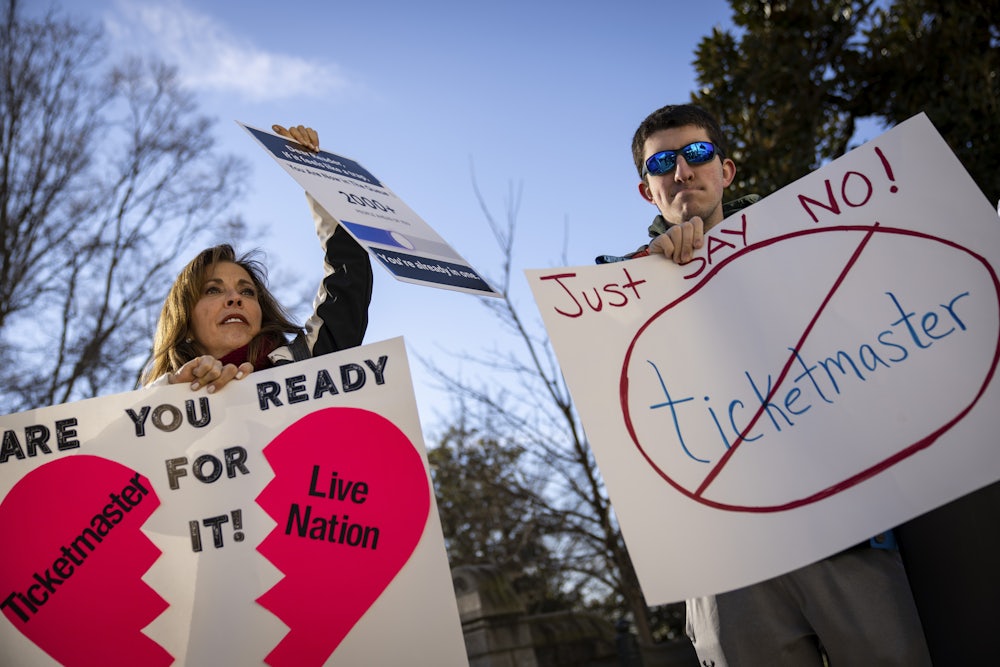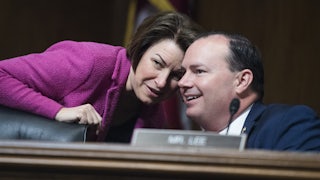Initially I was puzzled that Joe Biden would devote 293 precious words in his State of the Union speech to the invisible “junk fees” that banks and airlines and hotels and car rental companies, among other businesses, add to the sticker price for various services. I didn’t question that these are an annoyance to the petite bourgeoisie. But why include junk fees in a speech pitched to working-class voters?
Also: If the purpose was to draw a contrast between Democrats and Republicans, why harp on a topic so anodyne? Surely Republicans agreed with Democrats that markets don’t work properly when pricing lacks transparency. Indeed, Republicans were no less eager than Democrats to grandstand over Ticketmaster’s mishandling last fall of advance sales for Taylor Swift’s “Eras” tour, a fiasco for which Ms. Swift (estimated worth: $570 million) managed to avoid blame.
On further inspection, though, I was wrong on both counts.
Price transparency isn’t some specialized concern of moderately affluent types. It affects almost everybody. A 2019 poll by Consumer Reports found “at least 85 percent of Americans have encountered an unexpected or hidden fee over the past two years,” and two-thirds of those said they were paying more in junk fees than they had five years earlier. An even higher percentage (96 percent), unsurprisingly, found junk fees annoying. (The other 4 percent presumably inhabit some spiritual plane where the cares of this world matter not—or maybe they’re the people dreaming up and imposing these charges.)
Nearly one-third of the people in the Consumer Reports survey who got hit with junk fees reported that they fought them, and when they did, nearly two-thirds said they got the fees removed from their bill. Which suggests the businesses themselves recognize the illegitimacy of these charges even as they continue to collect them from a majority that can’t be bothered to complain because life is too short.
What are these fees? They’re the seat fees you pay on airlines—$20 or so to get a quantity of legroom that airlines once furnished free of charge. They’re the “safe fees” that budget hotels charge even if you don’t use the safe in your room, and “resort fees” pricier hotels charge for a pool you didn’t use. According to The Wall Street Journal, resort fees (which are not confined to resort hotels) can actually sometimes exceed the price of the room. There are airport fees that a car rental company will charge you for being idiot enough to rent your car at an airport. Cable companies are among the worst offenders, probably because so many people are “cutting the cord” and moving to streaming, leaving cable companies desperate to raise revenue any way they can.
So yes, I was wrong about junk fees’ ubiquity.
I was also wrong that Republicans wouldn’t dare defend a business practice that pisses off 96 percent of all Americans, many of whom presumably vote. While I wasn’t looking, Republicans fashioned themselves the party dedicated to protecting the right of American businesses to prevaricate about price and rip people off.
A lot of this has to do with Republican loathing for the Consumer Financial Protection Bureau, created by the Dodd-Frank financial reform law passed in response to the 2008 financial crisis. The main reason Republicans hate the CFPB is that it was dreamed up by Elizabeth Warren, then a professor at Harvard Law School. Congressional Republicans barred Warren from becoming the CFPB’s first director, prompting Warren to instead run successfully for Senate in Massachusetts, which annoyed Republicans even more. Conservatives have been especially critical of the CFPB’s funding structure, which sidesteps the appropriations process and instead draws its budget from the Federal Reserve. Sidestepping the appropriations process isn’t unusual for a bank regulator (the Federal Deposit Insurance Corporation and the Office of the Comptroller of the Currency also do so, in those instances relying on bank fees), but Republican legislators find it intolerable that they lack control over Warren’s creation, and in October, the conservative Fifth Circuit Court of Appeals in New Orleans ruled CFPB’s funding structure unconstitutional, leaving its future in question.
A year ago, Republican members of the House Financial Services Committee, then in the minority, wrote CFPB director Rohit Chopra to gripe not that he had proposed a regulation limiting junk fees, but merely that Chopra had the temerity to invite public comment about them in anticipation of perhaps proposing such a regulation. The Republicans protested that bankers gotta eat, too (“There is … always a cost associated with providing financial services and access to credit. These costs … may be offset in part by certain fees”). The Republican members also professed not to understand what the phrase “unexpected fees” meant. It was an entirely ridiculous letter that put the GOP on the side of bait-and-switch practitioners. The CFPB has since issued an advisory opinion against “convenience fees” paid to debt collectors when a debt is paid online or by phone (banks sometimes do this, too) and a guidance advising banks not to charge surprise overdraft or bounced-check fees when the customer is not at fault.
Republicans don’t limit their defense of junk fees to actions taken by the CFPB. In October, the Federal Trade Commission issued an advance notice of proposed rulemaking on junk fees. Again, this wasn’t a regulation—just an announcement that the FTC intended to issue a rule in the future and sought public input on what it should do. Issuing the notice required a vote from the four-member board, three of them Biden appointees and one a Trump appointee. The vote was 3–1, with the Trump appointee, Christine S. Wilson, voting no. In a written statement, Wilson said, “I recognize that some of these fees may be inadequately disclosed” but griped that “I was given less than three weeks” to consider the matter. She also protested that “fees sometimes viewed as unnecessary by consumers reflect attempts by businesses to recover incremental costs.” Never mind that these are supposed to be built into the sticker price.
It may interest you to learn that before being appointed to the FTC, Wilson was a regulatory lawyer for Delta Air Lines. In the State of the Union address, Biden singled out airlines as being especially egregious at adding back-end costs for things like allowing family members to sit together. “Airlines can’t treat your child like a piece of baggage,” Biden said. The Transportation Department in October proposed a rule requiring U.S. air carriers to “clearly disclose passenger-specific or itinerary-specific baggage fees, change fees, and cancellation fees to consumers whenever fare and schedule information is provided to consumers for flights to, within, and from the United States.” The Junk Fee Prevention Act that Biden proposed in his speech doesn’t yet exist, but when it does, don’t hold your breath for Republican co-sponsors.
If nothing is done, the junk-fee problem will continue to get worse. Junk fees are a consequence of the rise of online retailing. Web browsing made pricing more transparent than ever before, and businesses felt threatened by that. Two MIT economists documented the rise of junk fees 19 years ago as a conscious response to internet transparency. It’s only gotten worse since then. Yes, competition is what makes capitalism work, as Adam Smith pointed out three centuries ago. But don’t kid yourself; businesses hate competition because it makes life difficult for them. They’ll do anything they can to prevent it.
To repeat: I was wrong and Biden was right. Junk fees turn out to be a near-universal annoyance, not just an irritation to the professional-class voter who already votes Democratic. And Republicans continue to be dumber than I expect. They were presented with a choice: Defend capitalism, or defend businesses? They chose businesses, because that’s all they really know how to do. What a lucky break for Democrats.






